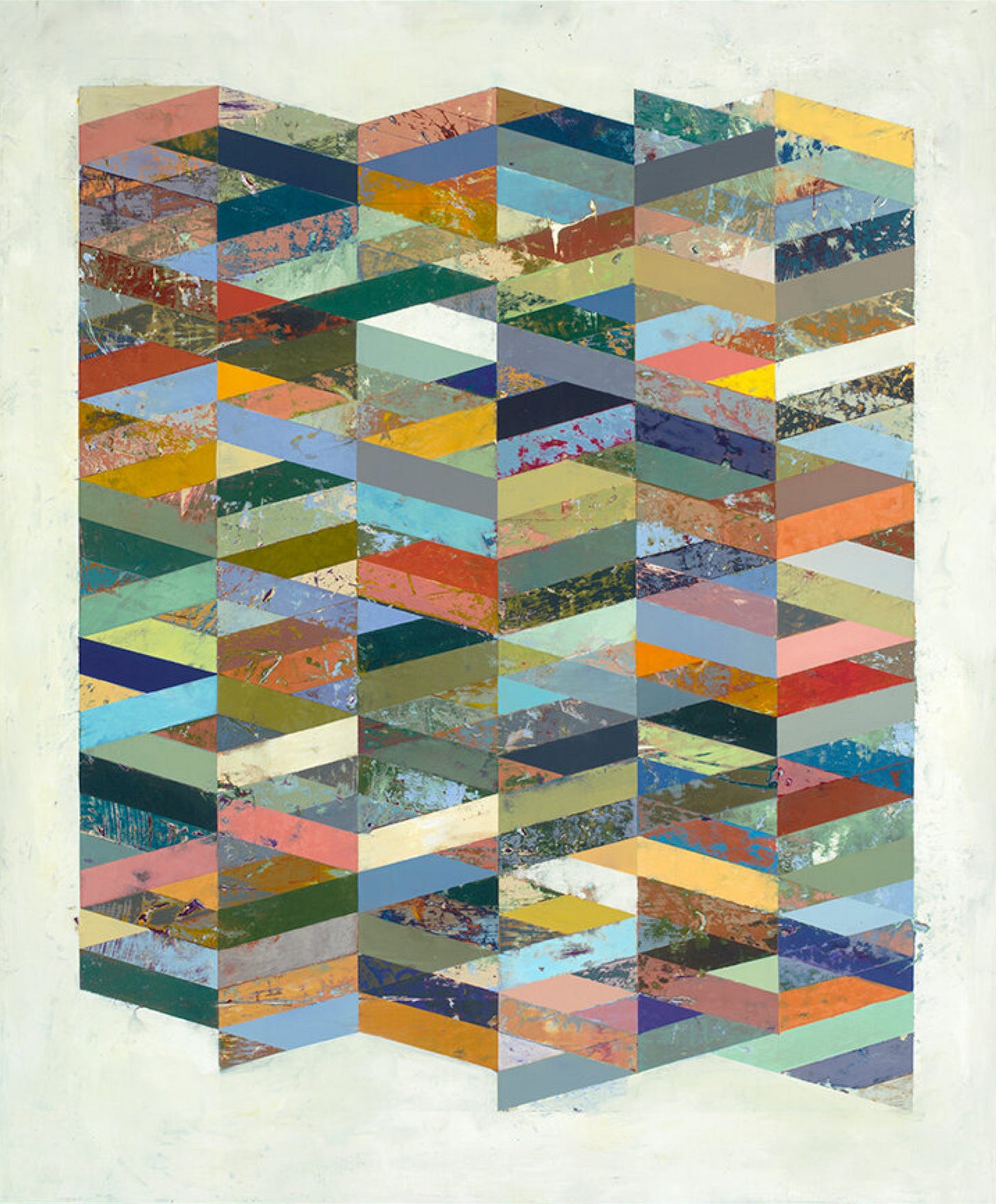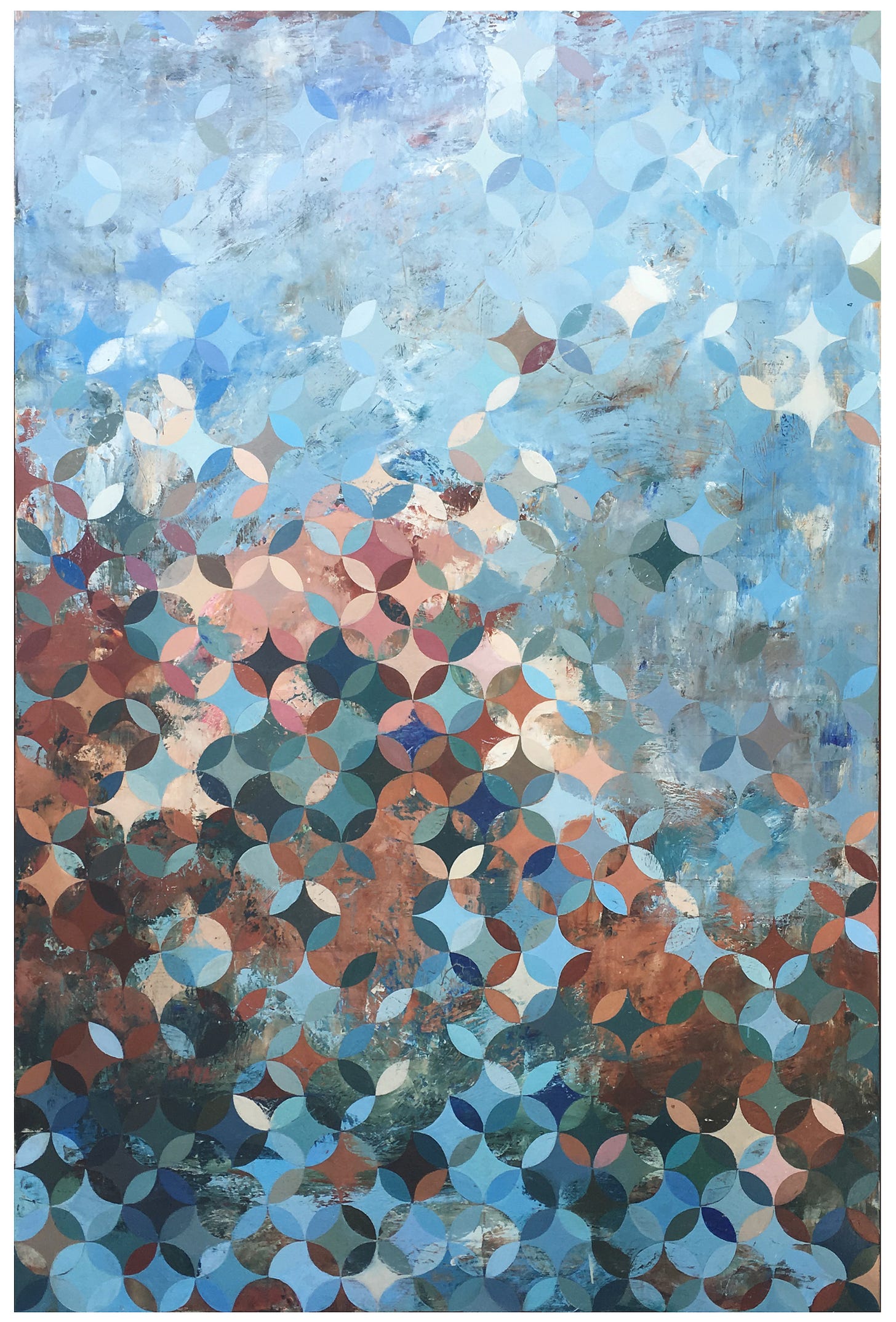One Sunday morning when I was a teenager, a member of the stake high council rattled my world when he told our congregation that his favorite book was Meditations by Marcus Aurelius.
He didn’t hedge. He just said it, with conviction.
I didn’t know you could do that.
After the meeting I tracked him down and asked if he’d let me borrow his copy of the book, which he happily agreed to do.
When I returned home and started reading Meditations, I didn’t comprehend most of what I read. But I sensed the book’s quiet power. Here was an emperor of Rome—possibly the most powerful human alive at the time—writing notes to himself full of humility, grace, and wisdom.
“Very little is needed to make a happy life,” Aurelius wrote.
“Remember that neither the future nor the past pains thee, but only the present.”
“Nothing is required of us than to accomplish well the task at hand.”
The more I read, the more I simultaneously felt exhilarated and confused. Here were words that stirred the same spiritual feelings within me that I felt while reading LDS scripture. And yet Meditations lacked the gold-leafed edges and thin, near-transparent paper I’d come to associate with sacred texts.
What did that mean?
I wasn’t sure, but I wanted more of the feelings that Meditations stirred in me.
Not long after, I discovered a book of conversations between a Christian reverend and a Hindu devotee that helped me confidently cross a threshold toward expansive spirituality. In the book, the Hindu devotee claimed that the New Testament phrase “all scripture is given by inspiration of God” indicates that Christians should be open to a spiritually expansive worldview—one that includes the scripture of Hinduism among other traditions.
The reverend said that he initially disagreed with such a view but that he had recently discovered a passage from a book that made him think twice.
Which book?
The Book of Mormon.
“I went through my reference library and found a wonderful statement in The Book of Mormon,” the reverend said, “which, mind you, is a book that I generally have no connection with and rarely ever read.”
Then he showed the Hindu devotee a passage in 2 Nephi 29:
“Know ye not that there are more nations than one? Know ye not that I, the Lord your God . . . bring forth my word unto the children of men, yea, even upon all the nations of the earth? Wherefore murmur ye, because that ye shall receive more of my word? . . . Wherefore, because that ye have a Bible ye need not suppose that it contains all my words; neither need ye suppose that I have not caused more to be written.”
“This is wonderful,” the Hindu responded.
“I really like it quite a bit,” the reverend said, “although it definitely substantiates your point of view.”
There I was, reading LDS scripture through the lens of someone who wasn’t LDS and realizing that yes, this was my tradition.
The Latter-day Saint call for an expansive approach to spirituality goes well beyond the Book of Mormon. Joseph Smith claimed that “one of the grand fundamental principles of Mormonism is to receive truth, let it come from whence it may.” The Doctrine and Covenants urges the saints to “seek ye out of the best books words of wisdom.” The thirteenth article of faith says to seek “anything virtuous, lovely, or of good report or praiseworthy.” Brigham Young said that whether the truth surfaces “with the Universalists, or the Church of Rome, or the Methodists, the Church of England, the Presbyterians, the Baptists, the Quakers, the Shakers, or any other of the various and numerous different sects,” we should gather it. And Orson Whitney said, “God is using more than one people for the accomplishment of his great and marvelous work. The Latter-day Saints cannot do it all. It is too vast, too arduous, for any one people.”
In some sense, this expansive approach to spirituality is the work of ongoing restoration. After all, the restoration isn’t a lifeless process, like bringing a classic car back to its original condition. That kind of project might be a fine hobby, but, as Patrick Mason wrote in his book Restoration, “We weren’t put on earth to watch reruns, no matter how good those old episodes were.”
Restoration is the work of digging deep to tap into the living source that’s always already here and then living from that place: here. It’s the work of planting seeds in soil, allowing the nutrients inside and outside ourselves to do the rest. “The farmer sleeps at night and is up and around during the day,” Jesus said, “Yet the seeds keep sprouting and growing, and he doesn't understand how. It is the ground that makes the seeds sprout and grow into plants that produce grain.” This ground of being—the living source itself—breaks us open for growth. In time, it also brings death to our old selves, which pass away like seeds newly sprouted. As Jesus said, “Unless a grain of wheat falls into the earth and dies, it remains just a single grain, but if it dies it bears much fruit.” Death gives way to life in an ever-present restoration.
And so I continue to dig and plant, searching for words and practices that sprout something in me. I’m struck to stillness reading Taoist questions such as, “Do you have the patience to wait till your mud settles and the water is clear?” and “Can you remain unmoving till the right action arises by itself?” I’m called to care for life when I read the Buddha say, “The wise live without injuring nature, as the bee drinks nectar without harming the flower.” And I feel hope when I hear the repetitive conviction of Julian of Norwich, who wrote, “All shall be well, and all shall be well, and all manner of thing shall be well.” Mystics and meditators from all traditions offer these fruits and so much more—brothers and sisters who’ve experienced the same eternal living source I yearn to live aligned with.
Some Latter-day Saints might worry about what will happen if members embrace this expansive approach to spirituality. “If we embrace wisdom from anywhere,” the thinking might go, “won’t some people leave the fold?” The answer is that they might. Anything is possible. But consider the spiritual hunger of Joseph Smith—a hunger that led him to explore the Apocrypha, Hebrew and Latin languages, myriad translations of scripture, and more. The founder of the LDS faith had a deep hunger for expansive spirituality, and it was from this hunger that revelation poured through him, the way it does through us all. Hunger feeds revelation.
So I ask: What if we don’t embrace wisdom wherever it’s found? What if we aren't expansive in our spirituality and instead are content to simply maintain it? What’s the risk?
One risk is that we won’t be ready for the inevitable exposure that upcoming generations will have to these texts. Two hundred years ago, these texts were available to only a subset of scholars. Today, by contrast, the words of wise women and men around the world (past and present) are instantly accessible to read or listen to via our phones. What happens when the next generation encounters these words, as many inevitably will? Will they be troubled by the fact that such texts are full of wisdom, as I was when I first encountered the words of Marcus Aurelius? Or will they celebrate, knowing such wisdom is part of one great whole?
We also risk getting stuck in the zero-sum debate that rises from a paradigm of either/or, in/out, and pure/impure. Chances are that we all know what it feels like for someone to engage us in such a way—to not see the nuance in our position and instead flatten us to being “the bad guy.” People of one sect do it to people of another, believers do it to nonbelievers, and nonbelievers do it to believers. Embracing an expansive spirituality allows us to be more resilient to such attacks because we play by a different set of rules. We sidestep the premise that we are 100 percent right and another group is 100 percent wrong. We realize that we can find wisdom even from those we disagree with and in doing so turn “enemies” to friends, as Jesus urged people to do.
Finally, and perhaps most importantly, we risk stunting our individual and collective growth —like trees stuck in planters too small for their roots. Such trees never reach their full height, and when we limit our sources of growth, we risk the same result. We need firm soil, true, especially early in life when we’re sensing into identity and community, and in this way, a planter is a solid place to start. But if our spiritual life grows stale, we suffer. And, as part of the body of Christ, when we suffer, the whole community suffers. And so we must faithfully follow that which nurtures genuine life in us, for the kingdom of God contains people who are alive.
In one of the most famous passages of an ancient Hindu text, a boy is sent to school for twenty years to study the scriptures of his tradition. He returns full of knowledge but also full of unfounded confidence, certain he’s discovered all the insight that the world could possibly offer him.
The boy’s father, sensing his son's confidence and knowing it to be misplaced, decides to teach him a lesson.
“Go and get the seed of a banyan tree,” he tells his son.
So the son does.
“Now break it open and tell me what you see,” the father says.
“I see nothing,” the son says.
“Exactly,” the father responds. “And yet from this invisible essence, a tiny seed grows into an enormous banyan tree.”
Then the father tells his son that he, too, is this invisible essence. “You are that,” he says.
Eventually, as the father continues to present his son with a series of similar analogies, the son returns to a state of humility, realizing that even though he had studied the scriptures of his own tradition for twenty years, he still didn’t know all the mysteries of life and should instead remain open for new growth.
It’s a story rich with insights, one of which is that we should never convince ourselves that we’ve “made it.” The confidence we gain from studying the wisdom of our own tradition (or the wisdom of any tradition, for that matter) lies not in our possession of knowledge, but in the source of that knowledge.
“My work is not yet finished,” reads 2 Nephi 29:9,11, “For I command all men, both in the east and in the west, and in the north, and in the south, and in the islands of the sea, that they shall write the words which I speak unto them.”
As we remain open to this divine reality—this invisible essence spoken of in the Hindu story of a father and son—we can’t help but grow. What will such growth look like? How does it work? Like the sower in the parable of Jesus, we can’t know. And yet the more we remain open, allowing the divine to work through us all, the more we’ll grow toward a Zion more beautiful than we can imagine.
“Enlarge the place of your tent,” Isaiah writes, “And let them stretch out the curtains of your dwellings; Do not spare.”
Jon Ogden is co-Founder at UpliftKids.org, a lesson library and curriculum for families to explore wisdom and timeless values together.
Artwork by Paige Crosland Anderson












Exactly what drew me to Faith Matters content and has enlightened my mind and expanded my heart! 🩷☀️🙏